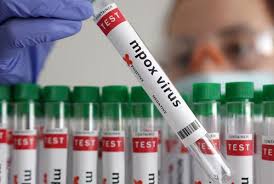Nigeria has received its first shipment of mpox vaccines, with 10,000 doses donated by the U.S. Agency for International Development (USAID). The delivery comes as the West African nation grapples with 40 confirmed cases of the disease, though no fatalities have been reported.
Dr. Muyi Aina, executive director of the National Primary Health Care Development Agency (NPHCDA), hailed the donation as a “critical step” in Nigeria’s fight against mpox.

“We are aware that the vaccine is not exactly in surplus supply. I believe we’re getting 10,000 of the about 200,000 doses that are available globally,” Aina said in a statement, underscoring the scarcity of the vaccine worldwide.
The Nigerian government has identified five priority states for vaccine distribution: Bayelsa, Edo, Cross-River, Lagos, and one other state yet to be named. These areas are likely chosen based on mpox prevalence or risk factors.
However, the NPHCDA has not yet announced a timeline for vaccine distribution or specified which population groups will be prioritized for immunization. This information is crucial for effective disease control and public health planning.

At the handover ceremony, U.S. Ambassador Richard Mills urged the Nigerian government to bolster its efforts against mpox. “We encourage the Government of Nigeria to continue to mobilize domestic resources to secure more vaccines to combat mpox,” Mills stated, highlighting the need for sustainable, locally-driven health initiatives.
The mpox vaccine donation represents a significant development in Nigeria’s public health landscape. Mpox, formerly known as monkeypox, is endemic in parts of Africa and has seen occasional outbreaks in Nigeria. The disease, characterized by fever and a distinctive rash, can be severe in some cases, making vaccination an important preventive measure.
This donation is part of broader international efforts to control the global spread of mpox, which gained increased attention following outbreaks in non-endemic countries in 2022. For Nigeria, a country with a population of over 200 million, the 10,000 doses mark a start in vaccination efforts, though more will be needed for comprehensive coverage.
Reuters.com



